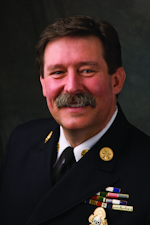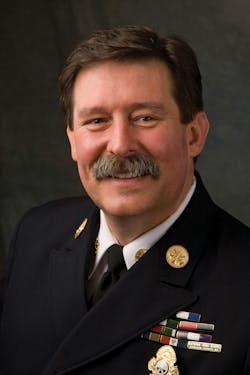Over the past few years, there has been a concerning trend to name firefighters and fire departments in lawsuits in conjunction with responses with police, where previously they were rarely sued. These lawsuits typically followed a police apprehension of a suspect or a response to a person who was experiencing a mental health emergency that involved both police and fire.
My fire service litigation database contains 144 such cases. The database has cases that date back as far as 1813. In the 202 years between 1813 and Jan. 1, 2016, there were 18 cases that involved fire departments under the category of assisting police. In the eight years since, there have been 126 cases. This is not to suggest that suits against police departments are on the rise. On the contrary, police departments regularly have been sued over such incidents. What is concerning is that suits that historically targeted police departments and police officers now include fire departments and firefighters.
Of even greater concern is the similarity of the factual allegations that are made against fire and EMS personnel: apathy; deliberate indifference about the patient’s condition; inappropriate, mean-spirited comments; and falsification of reports.
Historically, such allegations would be laughable. However, there is a compounding factor: These acts were caught on police body-cam video. In other words, there was no disputing that they happened.
Five concerns
There are several important take-aways.
First, we must be on our A-game on every run. Derelict behavior should not occur under any circumstance. The fact that it is occurring at all is cause for concern. We are better than that.
Second, firefighters must understand that plaintiffs’ attorneys scrutinize every frame of police body-cam recordings. If there are 20 police officers on scene, attorneys will review 20 body-cam videos, expecting to capture misbehavior by police officers. What they are finding is just as troubling and gives them additional parties to name as defendants.
Third, police body cams are not the only technology that’s recording us. Civilians who have cellphones and surveillance cameras are everywhere, and they are capturing all sorts of misbehavior.
Fourth, responses where we assist police with a suspect or they assist us with a mental health emergency are high-risk liability incidents. Police departments have recognized this. It is part of the reason that body cams are required to be worn by officers by most police departments. What has changed is that plaintiffs’ attorneys now view fire and EMS as potential defendants.
Like the fire service, civil rights attorneys have conferences and professional journals. In 2010, fire and EMS may not have been on lawyers’ litigation checklist for these types of cases. We are now clearly in the line of fire when it comes to potential liability.
Lastly and most troubling is the problem of falsified reports. My sense is that firefighters and medics know that if they fail to take vitals, conduct a patient assessment or obtain a proper refusal from a competent patient, they will have to answer to their medical director. Rather than actually doing what is required, these requirements have all too often become check-the-box activities. The problem is, when the case gets to court and firefighters are on video failing to do what is required, the falsified report makes it nearly impossible for the firefighter or the department to mount a defense. The falsification represents a tacit admission that the medic knew what he or she should have done. Otherwise, why would that person have lied about it?
Be cognizant
I had a professor who ended most of his classes with a simple admonition: A word to the wise is usually sufficient, but a fool must be left to his folly.

Curt Varone
CURT VARONE has more than 40 years of experience in the fire service, including 29 years as a career firefighter with Providence, RI, retiring as a deputy assistant chief (shift commander). He is a practicing attorney who is licensed in Maine and Rhode Island and served as the director of the Public Fire Protection Division at the NFPA. Varone is the author of two books, "Legal Considerations for Fire and Emergency Services" and "Fire Officer's Legal Handbook," and remains active as a deputy chief in Exeter, RI.






